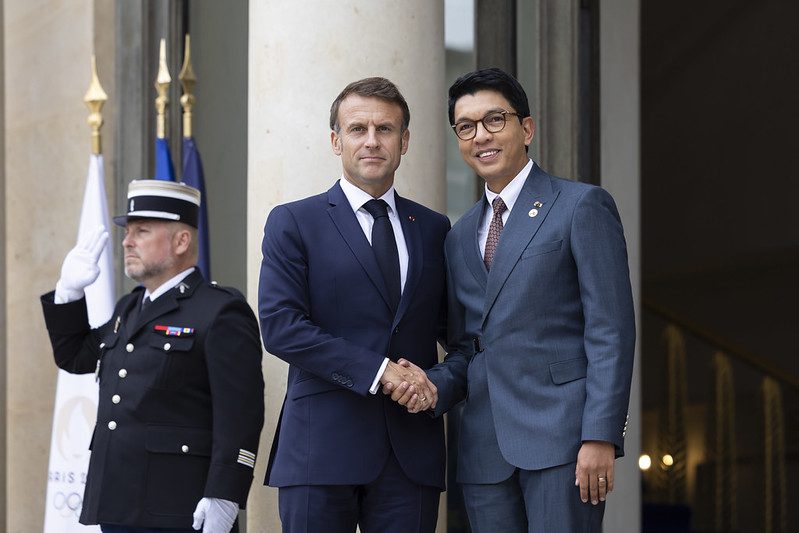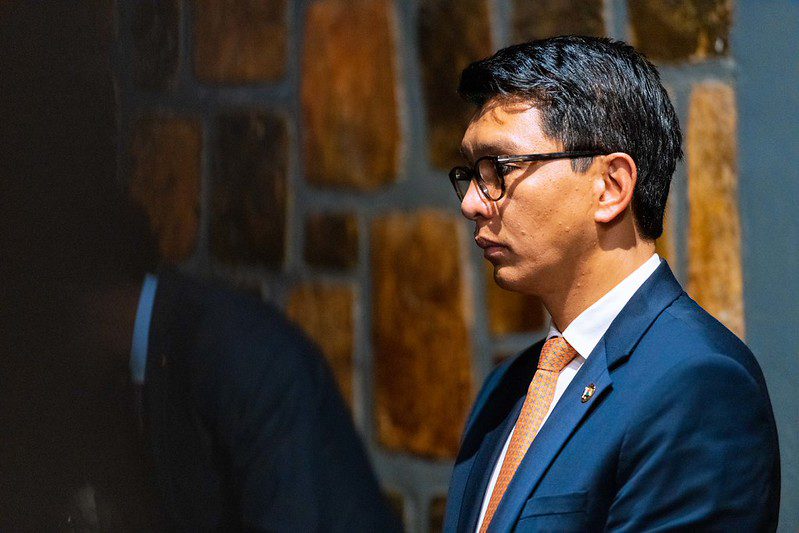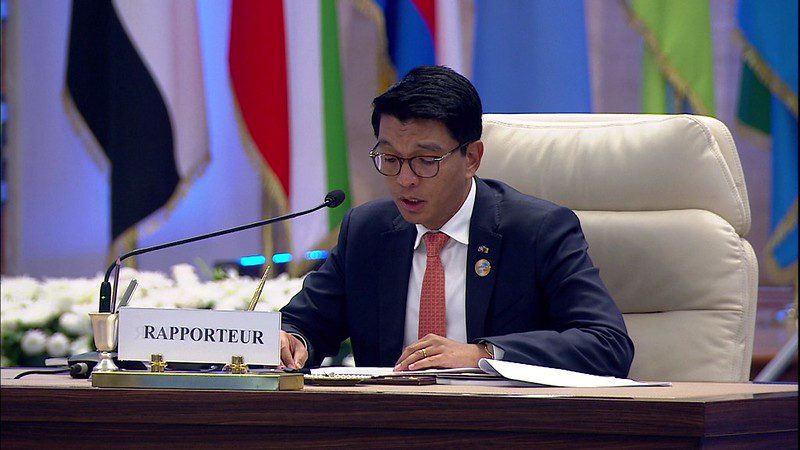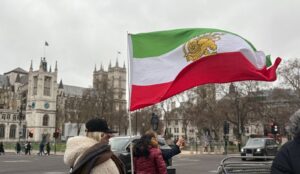Malagasy President Andry Rajoelina fled the country after a military coup endangered his life. This occurred after weeks of youth-led protests concerning poverty, power cuts, and a lack of opportunities.
The protests led to widespread civil disobedience across the Indian Ocean Island, with at least 22 people killed after authorities were condemned for their heavy-handed response. Disorder spread throughout the capital and to eight other cities, with reports of fires, looting, and clashes between protesters and authorities.
In an attempt to regain control of the situation, President Andry Rajoelina dismissed the government days after the protests began. He stated that the then Prime Minister Christian Ntsay and other government officials would remain in their positions until a new government was formed.
In response to the protests, he said, “Your demands have been heard, and I apologise if there are members of the government who have not done the work that people expected.”
Rajoelina’s attempt to restore government and peace
A week after dissolving the government, Rajoelina appointed army General Ruphin Fortunat Zafisambo as Prime Minister. The General had been the director of the military cabinet in the prime minister’s office until his appointment.
Rajoelina stated that the country needed a “prime minister capable of restoring order and the people’s trust.”

Image: President Andry Rajoelina and President Macron – Alexandra Lebon / Présidence de la République
He added that Zafisambo’s priority would be to restore electricity and water to the island. Despite this, protests continued, with many demonstrators calling for Rajoelina himself to resign.
The police continued their crackdown on protests, with the most prominent occurring in the capital, Antananarivo. Many of the protestors were university students who had voiced broader grievances against the government in protests the previous month.
The United Nations reported that at least 22 people were killed and more than 100 injured in the initial days of the protests, figures the government has rejected.
Rajoelina’s downfall
Rajoelina’s demise began when he lost the support of CAPSAT, an elite military unit that had helped him seize power in 2009. CAPSAT had expressed support for the protestors and their demands for better governance of the country.
On Monday, Rajoelina fled the country on a French military plane to an undisclosed location. In a live broadcast to the nation on Facebook, he stated that “a group of military personnel and politicians planned to assassinate me.”
His address to the nation was delayed several times on Monday as soldiers threatened to seize the state TV headquarters on the island.
“I was forced to find a safe place to protect my life,” he said, in response to a military rebellion and the ongoing protests against his government.
He emphasised the need for dialogue to resolve the situation and expressed his commitment not to allow Madagascar to be destroyed, despite the chaos surrounding his departure.
The chaos continues
Immediately after President Rajoelina fled the country, the lower house of parliament was suspended in an attempt to restore constitutional order.

Image: Madagascar’s President Andry Rajoelina visits Kigali Genocide Memorial – Kigali Genocide Memorial
However, parliamentarians defied expectations by turning up to participate in a vote of no confidence, which resulted in the impeachment of the President.
Shortly after, the leader of Madagascar’s elite CAPSAT military unit announced that the armed forces would form a council made up of military officers and would appoint a prime minister to “quickly” form a government.
“We are taking power,” Colonel Michael Randrianirina told reporters in front of the ceremonial presidential palace in the capital. Protesters celebrated the news with soldiers. Randrianirina added that the constitution and High Constitutional Court’s powers had been suspended, and that a referendum would be held in two years, but he gave no further details.
In response, Rajoelina’s office released a statement condemning Randrianirina’s announcement as an “illegal declaration” and “a serious breach of the rule of law.”
“The Republic of Madagascar cannot be taken hostage by force. The State remains standing,” it said.
The international response
French President Macron refused to confirm that Rajoelina had been evacuated by a French military aircraft but stated that “constitutional order” must be preserved in Madagascar.

Image: President Andry Rajoelina and President Emmanuel Macron – Manon Pradier / Présidence de la République
“We have a youth that has expressed itself, that wants to live better, and that is a very good thing,” Macron told reporters in Egypt.
“We just need to make sure that it is not taken over by military factions or foreign interference.”
The head of the African Union’s security council expressed similar concerns, stating that the organisation rejected any “unconstitutional change of government.”
Madagascar has since been suspended from the union with immediate effect until “constitutional order” has been restored.
Several members of Rajoelina’s inner circle have fled to nearby Mauritius. They include former Prime Minister Christian Ntsay and businessman Maminiaina Ravatomanga.
While the change of government may have eased the wave of protests, the military coup presents a future of uncertainty and a significant threat of democratic backsliding.
Featured Image via COMESA Secretariat




